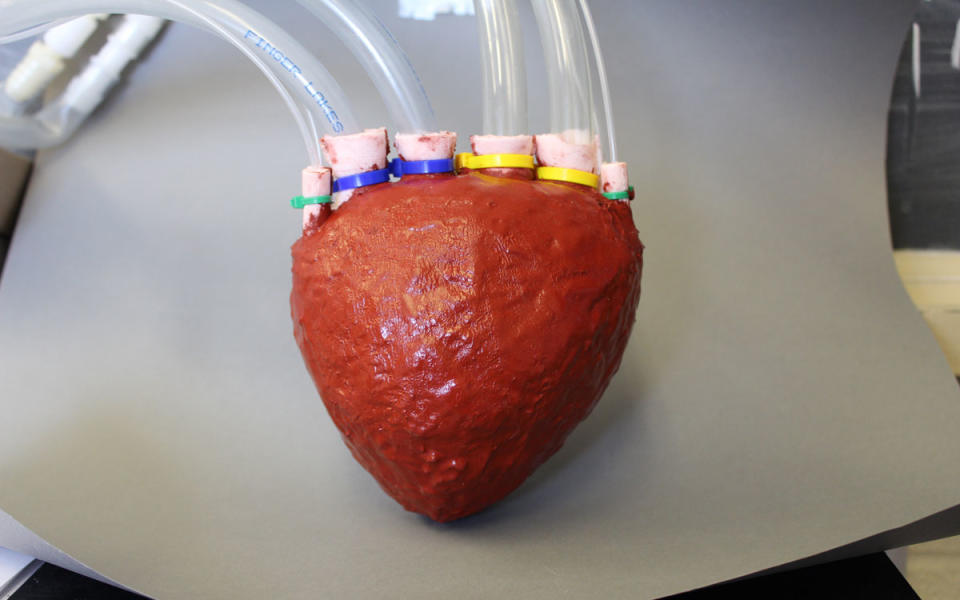Scientists make an artificial heart out of foam

Artificial hearts only kinda-sorta behave like the real thing. They pump blood, sure, but they're typically solid blocks of machinery that are out of place in a squishy human body. Cornell University thinks it can do better, though: its scientists have developed an artificial foam heart that imitates both the functions and shape of its fleshy counterpart. The key is a new polymer that can be poured into specific shapes, and has pores that let it pump fluids. It's not only soft and stretchable, but more efficient -- you don't need much energy to get liquids moving.
If the discovery leads to real products, the most obvious use is in smarter, safer artificial organs that could be customized for individual patients. That's just the start, though. The material could also be useful for soft robotics, prosthetics and anything else where a bendy, more natural-feeling surface would be appreciated.
